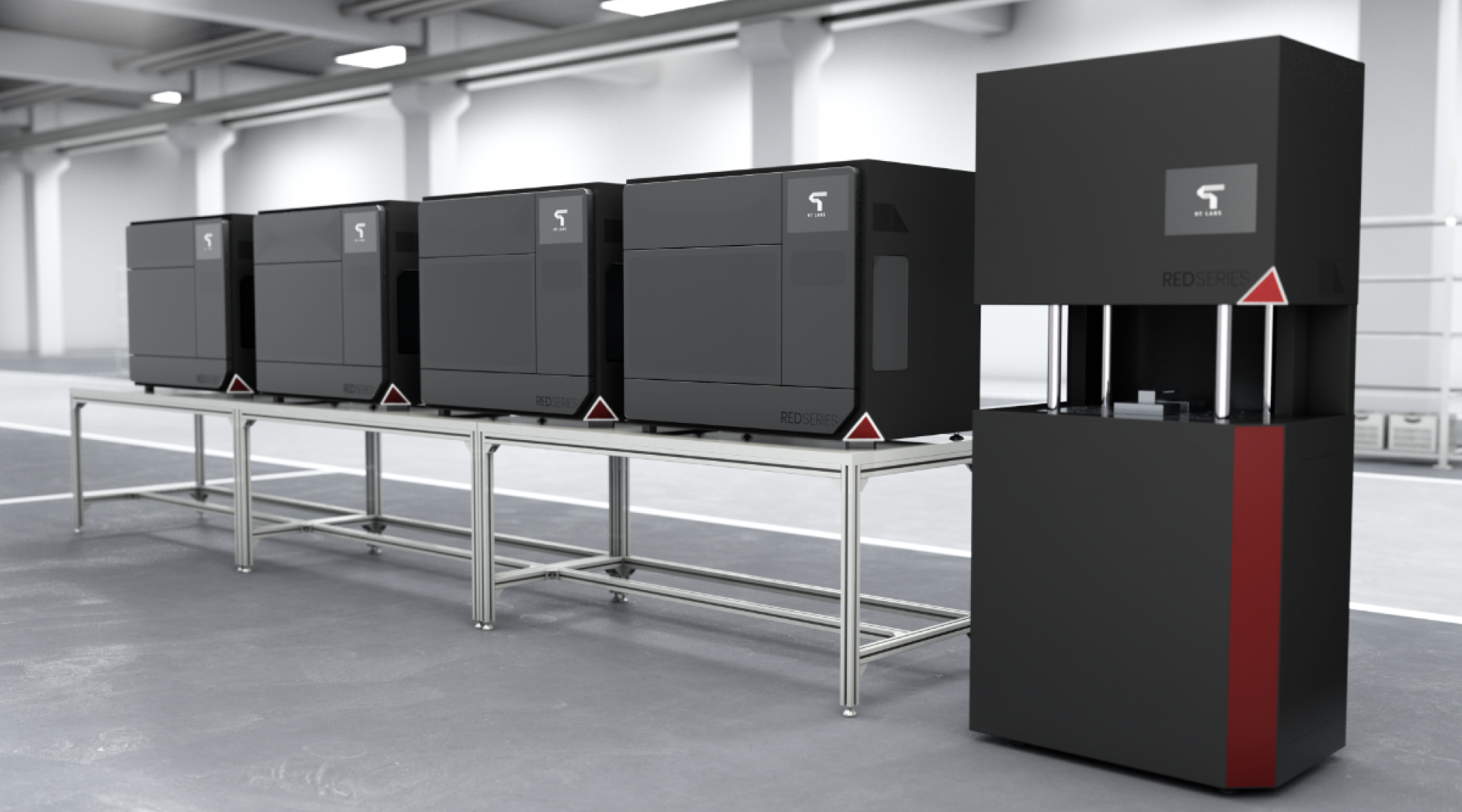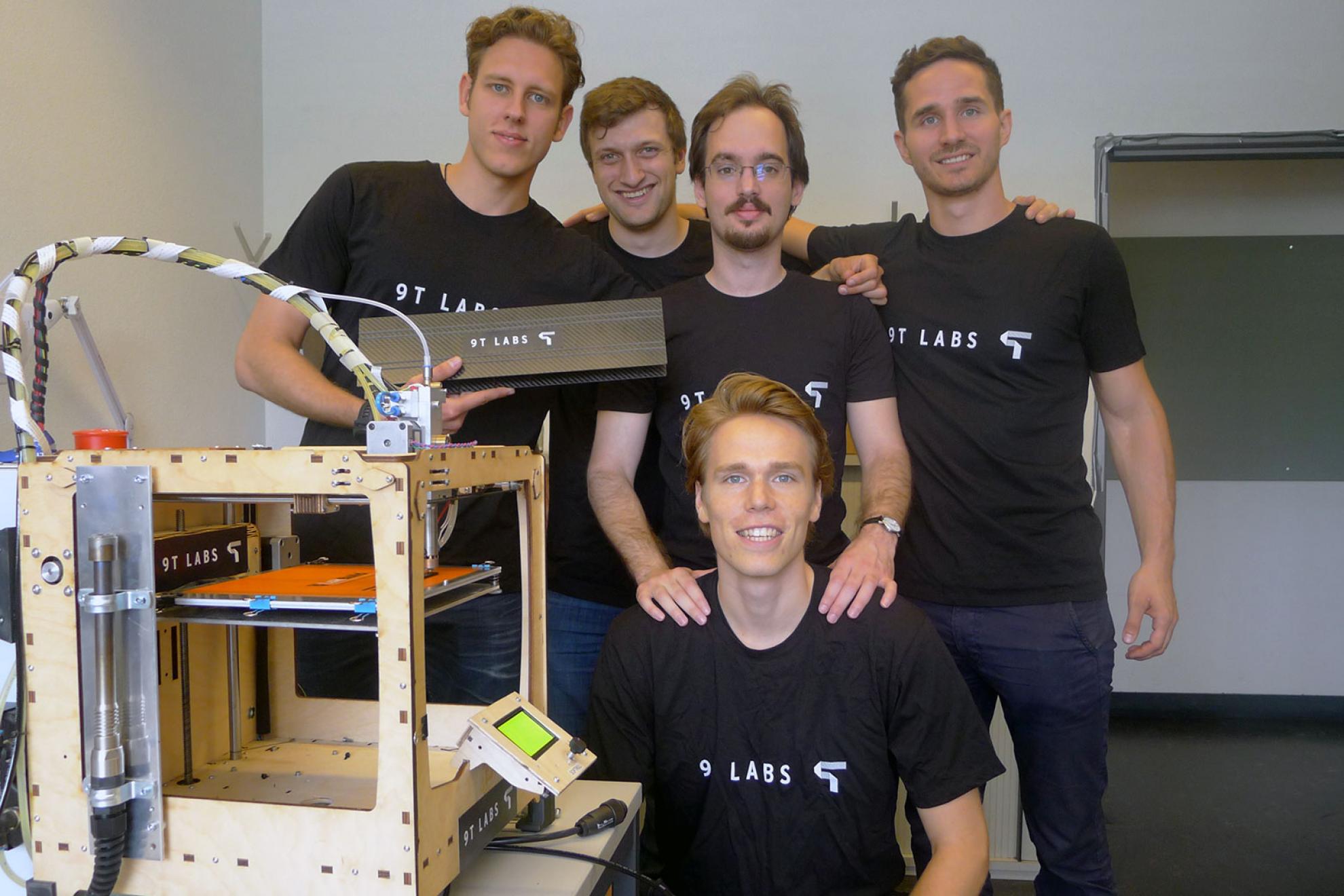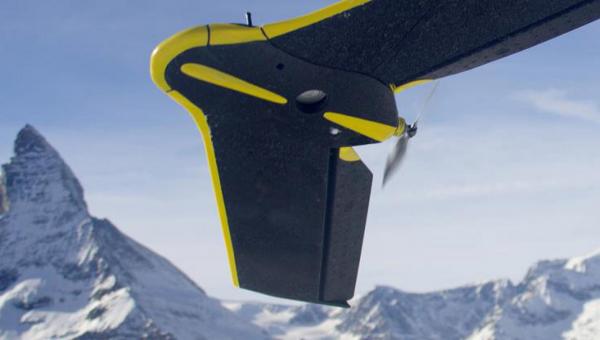3D printed carbon composites for the mass production

Composite manufacturing is going through a radical digitalisation and automation transition. ETH spin-off 9T Labs is at the forefront of this market with an all-in-one technology able to produce carbon composites with the help of 3D printing.
Carbon is a material that can hardly be topped. It is stronger than steel but up to five times lighter. That's why this fibre-reinforced plastic can be used everywhere where strength is required but weight needs to be minimised – in aerospace, for example, but also in robotics, medical technology and leisure equipment such as bicycles.
The problem: the production of carbon parts still requires a lot of manual labour. In addition, expensive moulds have to be made. The three founders of 9T Labs want to change this. The ETH spin-off has developed a 3D printer that can produce components from carbon. This will enable producers to reduce manufacturing costs and help carbon achieve its final breakthrough.

Part of 9T Labs team next to the prototype 3D printer during their time at ETH Zurich
What are the benefits of carbon fibre composites?
In addition to the superior and the undoubted mechanical performance of carbon fibre composites, commercial products also need to be cost effective. High costs and long lead times in manufacturing are the main constraints for the widespread adoption of carbon fibre composites. Using 3D printing technology, it is possible to create a fully integrated and automated workflow at minimal capital expenditure. The outcome is twofold: superior lighter parts and significantly lower costs, making carbon fibre composites a viable contender for metal substitution beyond just aerospace applications.
From aerospace to luxury goods
To achieve its ambition of making carbon fibre composite materials as accessible as ordinary metal materials, 9T Labs secured a USD 4.3 million seed round in 2020. The hard work has not gone unrecognised: 9T Labs has been awarded third place on the 2021 Swiss Top 100 Startups list of innovative and promising Swiss start-ups.
The 3D hardware, software and engineering expertise from Zurich can be used in a number of industries. 9T Lab can help replace surgical instruments and implants, withstand extreme environmental conditions in aerospace or create shock absorbent watches in the luxury industry.
9T Labs recently announced a partnership with Solvay, an international chemical company with 23,000 employees in 64 countries. The partnership will bring additive manufacturing carbon composite parts to mass production using 9T Labs technology.




